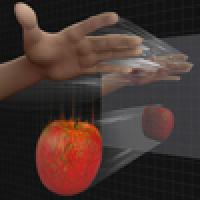
Science fiction, science fact: Are there parallel universes?
Are there parallel universes? In the latest online poll of our Science fiction, science fact project you told us that you'd like an answer to this question. So we spoke to physicists Adrian Kent and David Wallace to find out more. We also bring you an article from FQXi who are our partners on this project. Happy reading!
And don't forget to vote for the next question you'd like to have answered!
Are there parallel universes? — Universes in which, rather than reading this you are still asleep; in which you are happier, unhappier, richer, poorer, or even dead? The answer is "possibly". It's a controversial claim but one that has won more and more followers over the last few decades.
Playing games in many worlds, Part I — Would you stake your fortune on a 100 to 1 outsider? Probably not. But what if, somewhere in a parallel universe, the straggling nag does come in first? Would the pleasure you feel in that universe outweigh the pain you feel in the one in which you've lost? Questions not dissimilar to this one occupy physicists and for entirely respectable reasons.
Playing games in many worlds, Part II — In the previous article we explored how a clever argument involving gambling makes the idea that there are parallel universes more credible. But does it really?
The many lives of Hugh Everett III — Hugh Everett III is the father of the many-worlds interpretation of quantum mechanics. He published the idea in his PhD thesis but died before it gained the recognition it deserves. This article, which first appeared on the FQXi community website, gives an insight into Everett's difficult life. You can also listen to the accompanying podcast on theFQXi website.